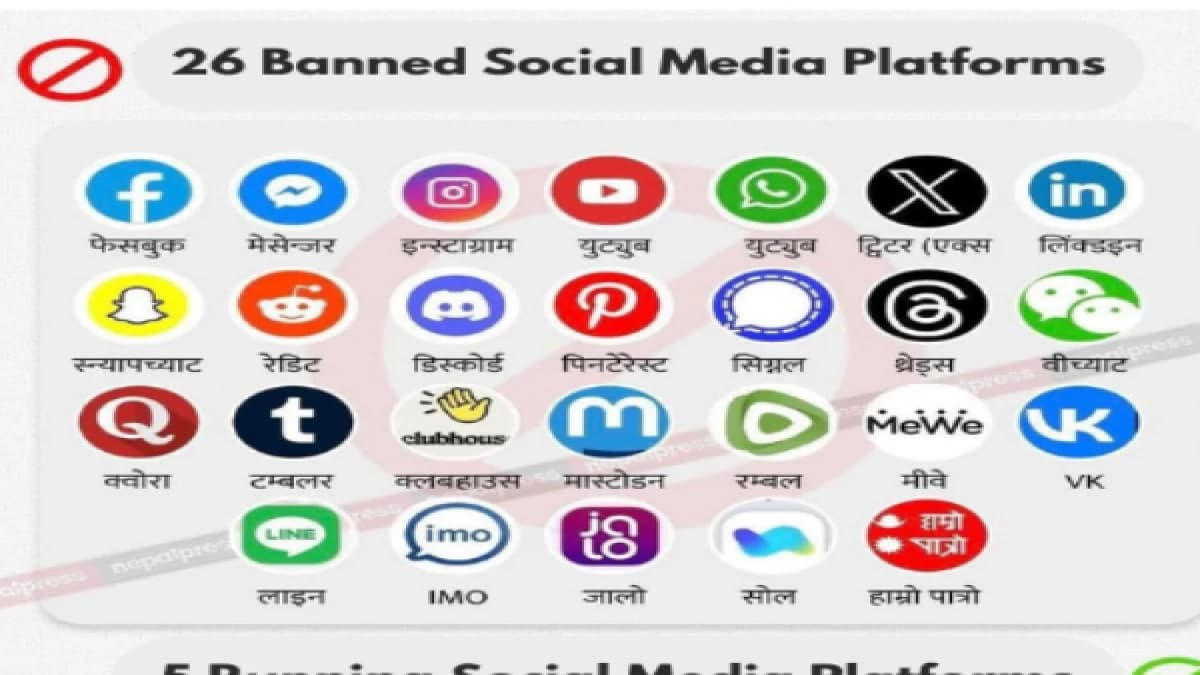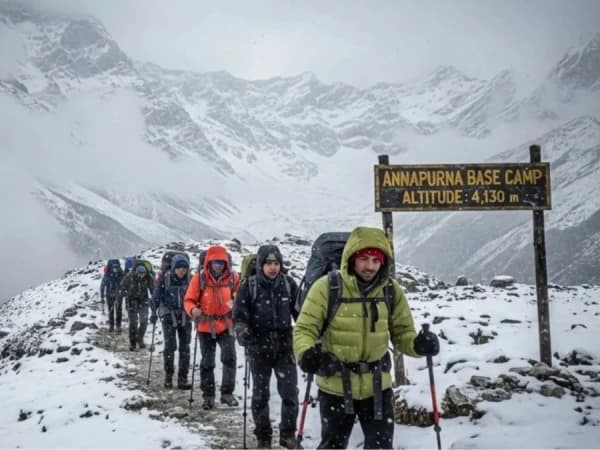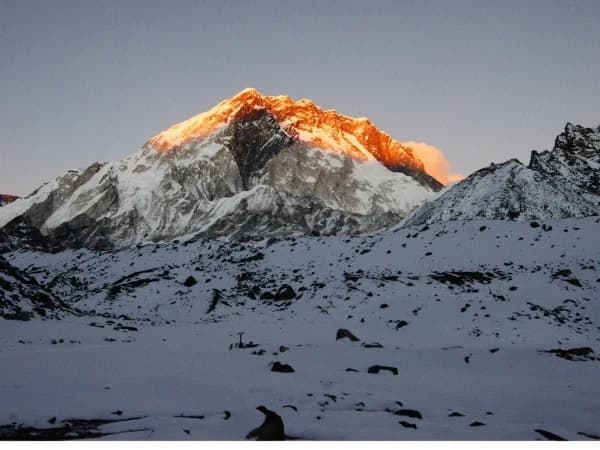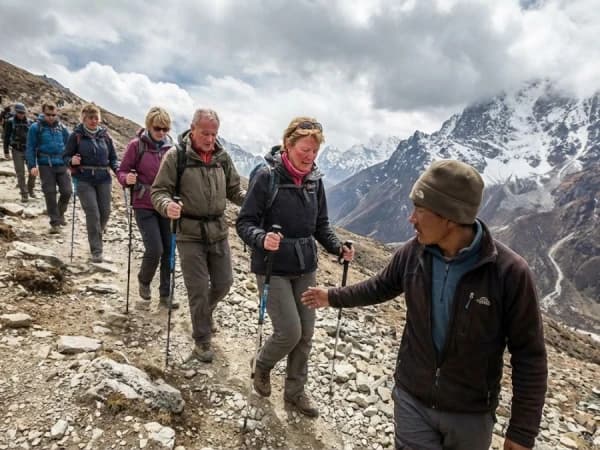Nepal bans 26 major social media platforms on the grounds of misinformation and security considerations. After this legitimate ban by the Nepalese Government, the communication has been down in Nepal, causing an increased use of VPN.
Nepal Social Media Ban: 26 Platforms Blocked Nationwide
The ban of social media platforms, including Facebook, X (formerly Twitter), WhatsApp, YouTube, and Instagram, among others, was officially announced by the Nepalese government on September 4, 2025. This decision has raised a major concern associated with national security, public order, and compliance with regulations. This brief blog will outline the primary reasons and implications of this ban in Nepal.
Why Did Nepal Ban Social Media?
The Ministry of Communication and Information Technology claimed these platforms are operating in Nepal without mandatory registration. Some of the main reasons are;
- Control of misinformation, hate speech, and cybercrime
- Local compliance with local laws
- Holding global technology majors accountable
The government would maintain, however, that it is not a permanent cessation. Services could be resumed once the companies register and fulfill Nepali laws.
Legal Backing:
The ban is not just a sudden order implemented by the Nepalese government. It is rooted in judicial enforcement. The Supreme Court of Nepal directed that all social media platforms register their company under the Ministry of Communication and Information Technology to legally operate in Nepal, and those who did not comply with the implementation are now blocked, and regular users are unable to access those social media platforms. Putting this into the infraction seemed fittingly embodied in:
- To hold international platforms operating on the Nepalese territory accountable to the local law for their deeds.
- To put in place a local representative in case of user complaints, disputes, or regulations.
- To avoid questioning why these platforms operate so freely, especially when their own crimes include hate speech, cyberbullying, or disinformation.
Increasingly ignored by some of the world's larger platforms, the government finally had to impose the ban just to comply with the ruling from the court.
Who Is Affected?
- Internet users' daily lifestyle: Most Nepalese currently cannot access Facebook, WhatsApp, Instagram, YouTube, and some banned apps through a normal internet connection.
- Businesses and content creators: Small businesses such as tourism operations that are extremely affected by social media marketing are raised to a bigger level.
- Exceptions: Government agencies, enforcement authorities, and essential services still have access to some of the communication platforms to avoid disruption of certain critical services.
In a way, this means the bulk of impact stands on the common user and the private sector, while the government keeps control over its digital communication channels.
Public & Global Reaction
The ban has provoked fierce arguments regarding its validity both inside Nepal and beyond its borders:
- Federation of Nepali Journalists (FNJ): Called the decision a major blow to the free press and expression, since journalists use these platforms to share news and updates.
- Civil society organizations (22 groups): Jointly issued a statement warning that the ban could push dissent underground rather than solve issues of misinformation.
- National Human Rights Commission (NHRC): Reiterated that while rules and regulations are required, an outright ban risks violation of the rights guaranteed by the legal constitution and requested the Government to formulate a well-balanced regulatory mechanism as soon as possible to reduce the adverse effects of this ban.
- Foreign media (Al Jazeera, Times of India, BBC, etc.): described this move of the Nepalese Government as a test of democracy and digital rights in Nepal, while also questioning whether this could lead to wider restrictions on the internet, blocking Nepalese people from communicating with each other and with those from other countries.
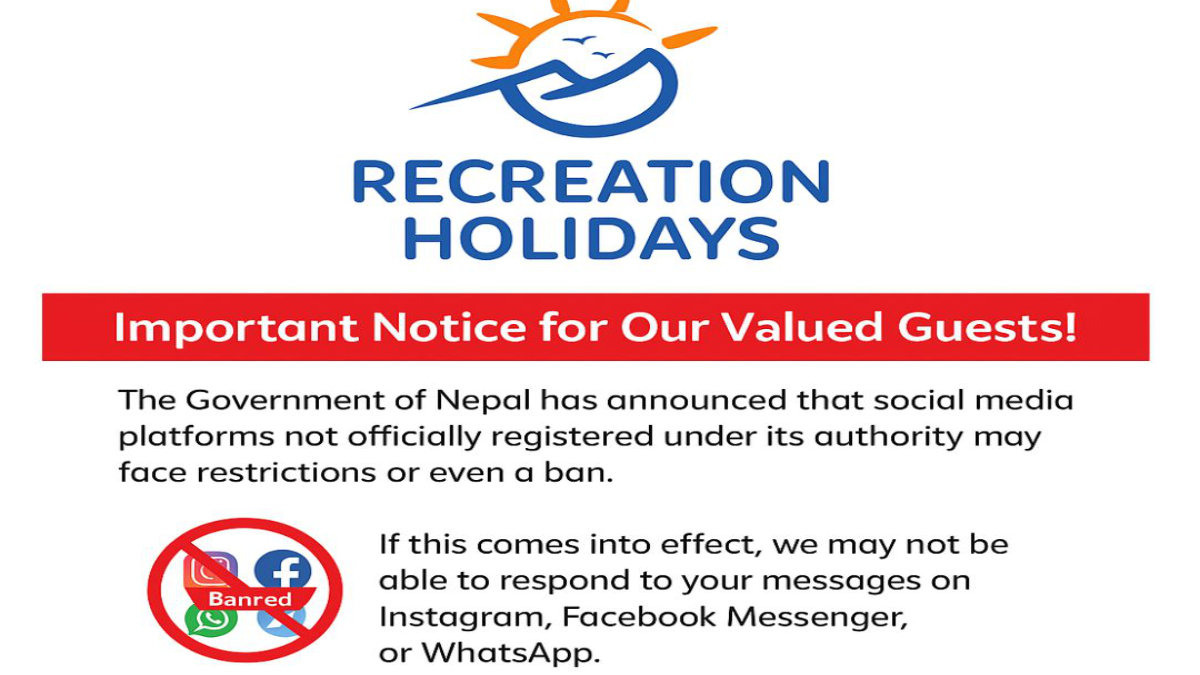
VPN Warnings:
The masses are getting themselves free VPN apps to bypass the restrictions imposed upon the use of Facebook or WhatsApp, as these two social apps are the most commonly used by Nepalese to establish communication with their family members, friends, clients, and are also used for distance learning.
However, the Nepal Police have issued public warnings against them, and the risks are:
- Data theft: Free VPNs are very prone to stealing personal information like passwords and banking information.
- Malware: Fake or unverified VPN apps often come packed with malicious software that may endanger your accounts.
- Financial scams: Some of the VPNs can secretly reroute online transactions, jeopardizing users' money.
While VPNs give temporary relief from bans, the authorities are reminding their citizens that this comes with serious privacy and security risks.
Nepal's decision to restrict access to 26 major social media platforms has turned into one of the most controversial digital policies in the country's history.
From the perspective of the Nepalese Government, this ban is a major step towards:
- Establishing digital sovereignty;
- Combating misinformation, hate speech, and cybercrime;
- Making sure that multinational companies operate within the boundaries set by the Nepali law and regulations.
Authorities argue that there are no clear rules; global platforms operate with their own standards to the detriment of national security and contribute to a breach of social harmony.
Critics argue that this has even bigger ramifications in terms of restricting freedom of speech and the press guaranteed under Article 19 of the Nepalese Constitution, affecting innumerable small businesses, travel and tourism operators, and entrepreneurs who relied on social media to advertise and communicate, and eroding the image of Nepal as a gradually closing off open digital path for international audiences.
In that sense, the position of balance, where the government seeks control and security while civil society seeks freedom and restoration of access to social media platforms, has been created.
Current measures require social media businesses to comply with registration requirements mandated by the Nepali Government. A balance would probably be struck between rights and regulation, which could involve a short-lived or long-term crackdown on Internet freedom.
The immediate ban on social media platforms potentially marks the beginning of a great historical intervention in the digital governance of Nepal, affecting a million citizens in how they will express and connect in the future.
NOTE TO ALL OUR VALUED CLIENTS: Please message in Viber (+9779851001069) or email us at info@recreationholidays.com. We ensure our smooth coordination and continued support, and we will be in touch with you via Viber and Gmail until further notice. Please feel free to reach us through these platforms for any updates, queries, or assistance.


